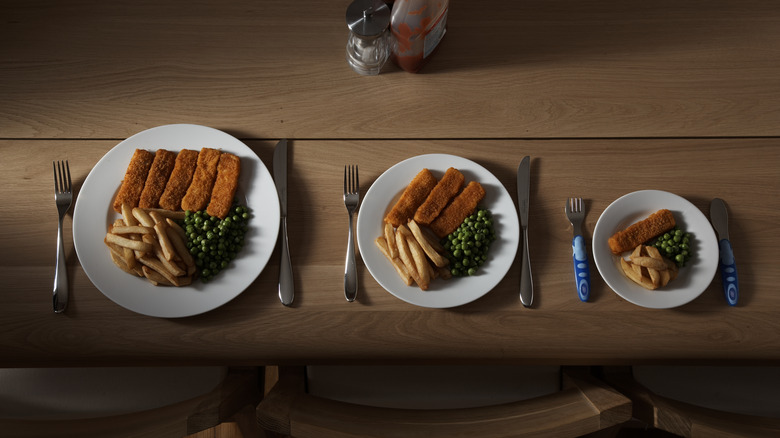Thomas Keller's Culinary 'Law Of Diminishing Returns' Explained
If you ever took economics in high school or college, then you've probably heard of the law of diminishing returns. But just to jog your memory, per Tech Target, the law of diminishing returns, in simple terms, means that if you invest your money and certain variables remain status quo, your investment will reach a point at which it cannot grow and get bigger and better, thus decreasing the reward. Famed Chef Thomas Keller says this law also applies to food.
Keller, perhaps best known for his restaurant The French Laundry in Napa Valley, shares on his website that his food philosophy is not for one to dine and have his or her pants feel tighter at the end of the meal, but instead believes a meal should be a journey and a pleasurable one at that. Keller explained to Smart-Chefs that the entirety of his restaurant's menu espouses the law of diminishing returns, saying, "The most compelling portion of a dish is in the first three or four bites." As crazy as that might sound and as much as you might want to cover the ears of your favorite bag of Cheetos Puffs or pint of Ben & Jerry's ice cream at such blasphemy, Keller may be on to something.
Less is more
According to a press release on Psychological Science, researchers have made a similar discovery that backs up Thomas Keller's logic. Emily Garbinsky, a researcher with the Stanford University Graduate School of Business, led a team that had 134 undergraduate students participate in an experiment involving Nut Thin crackers. Each group was given a set amount of crackers and had to indicate their enjoyment level as they ate each cracker. As it turns out, less is more. Those who ate 15 crackers did not enjoy the experience as much as those who ate only three.
This definitely echoes Keller's thoughts on the matter. He told Smart-Chefs, "With the first bite you're getting into it, by the second bite you start to realize it, and it is at the third or fourth bites you get the maximum appreciation and pleasure from that dish...and you keep eating because of that memory of it being really extraordinary. But was it as good [at the end] as it was at that second, third, or fourth bite? No."
Garbinsky says that the findings of her team's research suggest smaller portions may be better for both companies that make them and for those who consume them. People who ate smaller portions of the crackers were also more likely to take a complimentary box for the road to enjoy at a later time.

